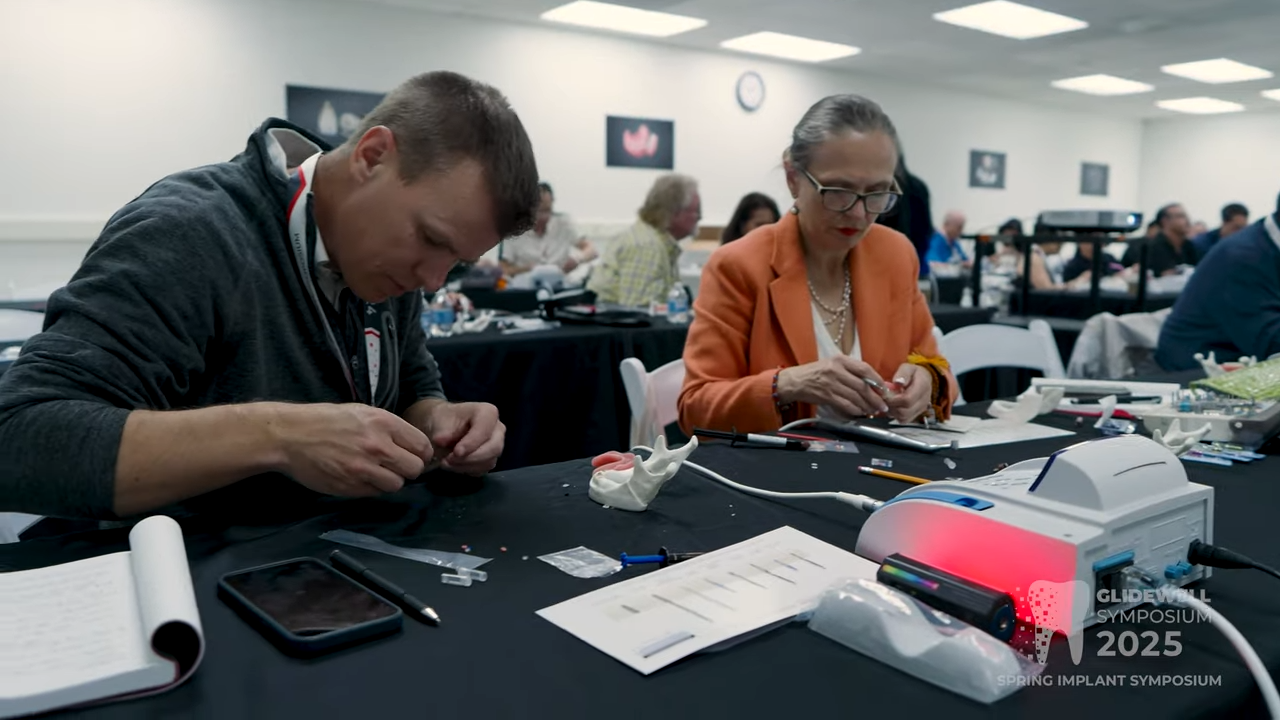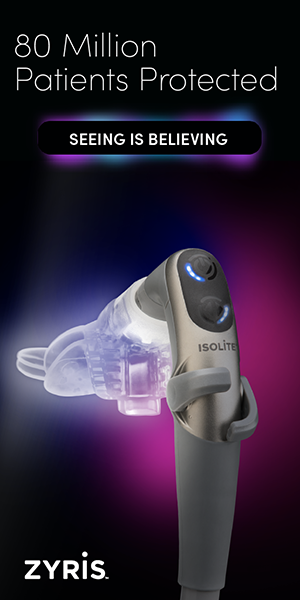Partnership between Philips and Aspen Dental providing education for clinicians and patients, and better access to products proven to help promote healthy smiles
By Stan Goff, Senior Content Editor
It’s one thing for Philips Sonicare solutions to be offered in the more than 1,100 Aspen Dental locations, but an even bigger thing to help those Aspen Dental clinicians educate and motivate their patients to stick with a proper oral care regimen designed to protect their smiles.

Last fall a partnership was announced between Aspen Dental, the largest group of branded dental offices in the world, and Philips Oral Healthcare. The partnership means Aspen Dental’s clinicians can now offer clinically-proven Philips Sonicare products in office, including Philips Sonicare ExpertClean, which uses built-in smart sensors to guide a patient’s brushing. Aspen Dental practices are also spotlighting Philips Sonicare Cordless Power Flosser and Philips Sonicare Teeth Whitening Kits, the brand’s latest offerings in power interdental cleaning and at-home teeth whitening. These products provide patients with a full suite of comprehensive, at-home solutions, but it’s important to prioritize education for both clinicians and patients as this also plays a key role in delivering better care to more patients.
At the Chicago Midwinter Meeting in February, The Aspen Group’s Dr. Rute Ramalho, VP, Hygiene Strategy & Operations and Aspen Dental’s Belangie Perez-Torres, Director of Hygiene Strategy & Operations, along with Cindy Sensabaugh, Senior Manager of Professional Relations and Education at Philips Oral Healthcare, discussed the partnership and oral health in general with Dr. Paul Feurestein, DMD, Editor-in-Chief, Dentistry Today. The group of experts shared insights on oral hygiene, at-home oral care routines, and Philips Sonicare Solutions.
“Most of the patients at Aspen Dental, in fact, haven’t come to the dentist in a very long time, so they have a lot of restorative work that needs to be done, and oftentimes they’re ashamed of their smile,” explained Dr. Ramalho when asked by Dr. Feurestein about the messaging Aspen Dental practices provide to patients both in-office and in terms of at-home care.
“It’s very important for them to feel at home and not criticized, so that’s very important for clinicians at Aspen Dental. That’s where the partnership with Philips Oral Healthcare comes into play, because we also need to retrain the patients that now have committed to their smiles. As important as the work that we do at the practice is, it’s just as important as the work they do at home with their own oral health. That’s where Cindy [Sensabaugh] has been crucial with the partnership with Philips to really build the right relationships with clinicians and patients so they can continue to maintain the best oral health.”
Chairside education is at the center of this collaboration, with Philips introducing its new Path to Health Toolset to all Aspen Dental practices. Developed in partnership with behavioral scientists and dental professionals, the toolset seamlessly integrates into the natural workflow of dental practices. It is designed to help quickly learn a patient’s health goals, drive case acceptance through patient education and support dental professionals and patients on a path towards health together.
“We worked with a behavior scientist to identify ways to help patients make changes in their behavior,” said Sensabaugh. “By asking the right questions, you can learn what the patient’s goals are. Once you learn those goals, then you know how to frame the conversation that you’re having with your patient. And then we provide the toolset to give the clinicians the materials that can help educate their patients. By better educating patients so that they understand their disease, clinicians can help teach them how to manage their disease.”
The clinicians that ask these questions can provide tailored recommendations to their patients, and these patients then can take that information home and improve their health in between visits. “It’s a partnership between us, but it’s also a partnership between Aspen Dental clinicians and their patients to really work towards their path to health,” Sensabaugh added.
Dr. Feurestein asked about communication methods between clinicians and patients and any advice that Aspen Dental might share with the dental team.
“Patient education is really the heart of hygiene,” explained Perez-Torres. “It’s important that we have the right equipment for our patients, not just to get immediate care at the practice, but ongoing care. We’ve worked closely with our Philips partners to design a training program for clinicians to provide them with the right messaging – which at its core is patient centric – to help overcome any fears or objections while also providing more access, even for the in-house options when there’s concerns with financing or payments. We try to work closely together to ensure patients have access to the best clinically proven products and empower clinicians, so they understand what motivation patients have.”
Dr. Ramalho also stresses how critical the patients’ behavior is when it comes to doing their part to keep their mouths as healthy as possible.
“It’s really important for them to understand that the work they do at home is very, very important to continue their own journey,” she said. “Clinicians need to explain to the patients, if they don’t take care of it at home, they can continue to come to the dentist, but it’s not going to translate to the outcome they desire. We need to find a patient’s motivation. What’s motivating them at this point in their journey, to transform their smile and use that as a motivator for them as well.”
Philips works with the Aspen Dental staff to provide consistent messaging for the clinicians, who then relay this messaging to their patients.
“We have video tools that the patients can access as part of the Chairside Guide, and there are other materials that are available on our website that the patients can access as well,” Sensabaugh said. “One of the things that we at Phillips love about our partnership with Aspen Dental is that we’re both very committed to helping improve lives and improving health. That’s why this partnership works so well.”
Navigating conversations can be tricky with patients who aren’t doing their part at home, but it’s important to get that message through to them. It takes an effort from everyone to ensure patients understand the importance of maintaining their oral health beyond the chair.
“You know, we’re a relationship business, right?” Dr. Ramalho said. “So, it’s important for clinicians to have that connection with their patients. And obviously patients trust them, and it’s important that they’re not just recommending something because they believe it. Patients need to believe that too. Once clinicians have their buy-in, patients tend to be more compliant, because they know this is an investment, not necessarily an expense. Clinicians demonstrate there’s a lot of work that they need to complete and maintain so that maintenance aspect is really key for long term success.”
The dental team also helps with teaching patients how best to use the Philips Sonicare products that are part of their treatment plan.
“Not only do clinicians actually offer instruction in-house, but they also give customized training and education around it,” Dr. Ramalho said. “Aspen Dental offices have models so patients can actually touch [a product] before buying it and have a little bit more experience with it firsthand before deciding to purchase.”
“Access to care is something that’s important for Aspen Dental as part of our core belief. We’re thoughtful about selecting key products that are going to make a huge impact long term so that even the barrier of going to some place where patients might get overwhelmed with the options is removed.”
Dr. Feurestein asked Sensabaugh to address the research behind Philips Oral Healthcare innovations and how trust in a brand plays a role in a company’s success.
“Both Philips Sonicare ExpertClean and Philips Sonicare Power Flosser are supported by research showing their efficacy,” she said. “With Philips Sonicare Power Flosser, what’s really exciting is the research showing that it goes up to six millimeters sub gingivally. For your patients with periodontitis, it’s important to be able to access those areas that are very difficult to access otherwise. String floss could never get six millimeters subgingivally, so it gives the patient an opportunity and the proper tools to manage their home care at home in an effective way, yet safe way.”
Perez-Torres added that Philips Sonicare Power Flosser is easier to use than floss and because of this it can help many patients who might otherwise not stick with it.
“Philips Sonicare Power Flosser is ideal for patients who already have challenges with compliance, and who have a lot of restorative work,” she said. “It’s much easier than flossing, right? So that helps with motivation and compliance that we were discussing earlier.”
The Philips Sonicare portfolio of clinically-proven power toothbrushes and interdental cleaners helps patients achieve healthy smiles between dental visits. The products are available now at Aspen Dental. Visit PhilipsOralHealthcare.com and AspenDental.com for more information.




